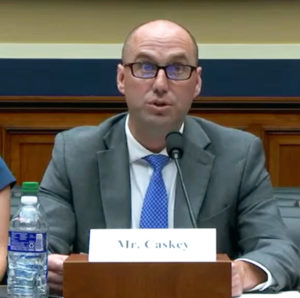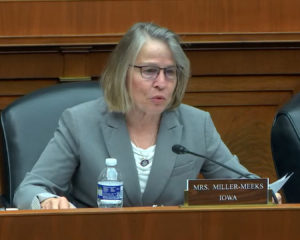 The Environmental Protection Agency on Wednesday announced a final rule for biofuel volume requirements through 2025, displeasing major biofuel organizations.
The Environmental Protection Agency on Wednesday announced a final rule for biofuel volume requirements through 2025, displeasing major biofuel organizations.
The final rule includes conventional renewable fuel requirements of 15 billion gallons for both 2024 and 2025, down from the proposed volumes of 15.25 billion for both years. Renewable Fuels Association President and CEO Geoff Cooper called the reductions “inexplicable and unwarranted.”
“The RFS was intended to drive continual growth in all categories of renewable fuels well beyond 2022; instead, today’s final rule flatlines conventional renewable fuels at 15 billion gallons and misses a valuable opportunity to accelerate the energy sector’s transition to low- and zero-carbon fuels,” said RFA President and CEO Geoff Cooper. “By removing half a billion gallons of lower-carbon, lower-cost fuel, today’s rule needlessly forfeits an opportunity to further enhance U.S. energy security and provide more affordable options at the pump for American drivers.”
“If EPA’s goal with the Renewable Fuel Standard is to maximize reductions in greenhouse gas (GHG) emissions from the transportation sector, today’s final rule falls short by arbitrarily limiting conventional biofuel use to 15 billion gallons in 2024 and 2025 compared to the Agency’s proposal of 15.25 billion gallons for each of those years,” said American Coalition for Ethanol (ACE) CEO Brian Jennings. “Higher blending targets would enable fuels such as E15 and E85 to quickly displace carbon pollution from gasoline, but EPA’s proposal will rein in those opportunities.”
The rule also finalized moderate increases in the biomass-based diesel and non-cellulosic advanced volumes each year but did not increase the overall renewable fuel market. Clean Fuels Alliance America notes EPA failed to change biomass-based diesel volumes for 2023 despite the rapid increase in U.S. production of biodiesel, renewable diesel and sustainable aviation fuel during the first months of the year.
“EPA is undercutting the certainty that our industry hoped for from a three-year RFS rule,” said Kurt Kovarik, Vice President of Federal Affairs with Clean Fuels. “U.S. clean fuel producers, oilseed processors, fuel distributors and marketers have all made significant investments to grow the industry rapidly over the next several years. The industry responded to signals from the Biden administration and Congress aiming to rapidly decarbonize U.S. fuel markets, particularly aviation, marine, and heavy-duty transport, and make clean fuels available to more consumers. The volumes EPA finalized today are not high enough to support those goals.”
The rule also responds to a court remand of the 2016 annual rule by establishing a supplemental volume requirement of 250 million gallons of renewable fuel for 2023, which the groups support.
 Clean Fuels Alliance America continues to grow a more diverse membership as interest in low carbon fuels gains momentum.
Clean Fuels Alliance America continues to grow a more diverse membership as interest in low carbon fuels gains momentum. 










